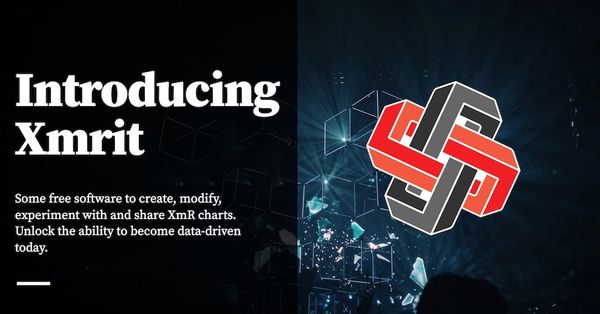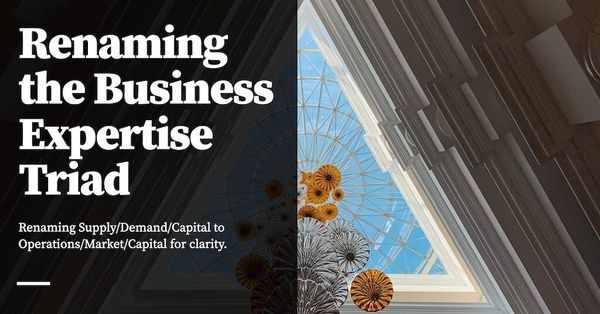At the end of most years I write a recap of Commoncog’s best essays. 2023 was different: I got married in December and took the entire month off. As a result, you’re getting this recap at the start of 2024. I want to do two things here: I’ll do a thematic retrospective, but more importantly I want to talk about what’s coming down the pipeline now that Commoncog has a new vision for its future.
Commoncog’s 2023, Recapped
Commoncog covered two main topics in 2023.
Well, actually let me correct myself: I spent the start of 2023 training five hours a day every day for a Judo experiment that I wrote about in Mental Strength in Judo, Mental Strength in Life. And then we covered two topics together.
I want to pause for a moment here to revisit the impact of that Judo experiment. For those who are new to Commoncog, for a four month period starting in November 2022 and through to April 2023, I moved to a different country, trained like a full time athlete, and then fought in the Malaysian Senior Nationals as a recreational, 30-something has-been. I did this partly for regret-minimisation reasons, partly because my coach had a peculiar strategy for winning, but mostly because I wanted to know how deliberate practice actually worked.
The essay that I wrote summarising that experiment laid bare all of my mistakes and my personal weaknesses; it was one of the hardest pieces I’ve ever written. (But also I did get to experience what deliberate practice actually feels like, which was kinda the point of the whole thing; I now know what it takes to come up with new deliberate practice exercises from scratch).
At the end of the experiment I wrote:
How did this trait show up in my approach to business? I came to realise that everything impressive that I have ever accomplished in business was due to someone pushing me off a ledge. When I built the point-of-sales company, my old boss was the one who said “ok, we’re tackling restaurants” and I groaned publicly and complained bitterly and said that it would result in many all-nighters, and many botched deployments, and multiple customers yelling at us, and we haven’t even fixed the problems with our prior products so why were we tackling a new market segment, and indeed all of that came true ... but we figured out how to tame the business chaos anyway, and six months later we were in a markedly different, better place. Two years ago I helped a SaaS business double their annual recurring revenue, but it took over a year of lack-lustre, unhappy results, and the prodding of the company’s CTO before I proposed something new. Left to my own devices, I would have happily settled into a routine, making tiny adjustments to my beautiful, predictable process, never really taking large enough bets to improve our lot.
This was painful to admit. Sitting in that small Airbnb kitchen, eating those oranges, I held on to this self-image that I was a decently competent business operator. But then I realised that I never made big bets, even when justified. I was simply too uncomfortable with the chaos from such large moves. So to some degree it was true that I was decently competent — I could be dropped into a business problem and come up with some kind of path to get to our goals. But what I was learning was that I had to be given those goals; I had to be pushed off the ledge by a boss or a colleague. I would not, by myself, take the plunge.
And then, with these lessons percolating in my head, I came back to normal life.
A number of things happened shortly afterwards. I repositioned Commoncog to be about ‘accelerating business expertise’, released the business expertise series for free, and redesigned the site to showcase the three legs of the business expertise triad. I also increased prices. And I renamed the triad for simplicity (with apologies to Dr Lia DiBello, whose research produced the triad).
After which, we settled into the two main topics of 2023:
- A long-running series on the expertise of capital in business.
- An even longer-running series on becoming data driven.
Let’s talk briefly about both series, in order.
The Capital Expertise Series Recapped
The goal of the Capital Expertise series was to lay out the elements of capital expertise in the context of business — something that not many business writers have attempted to do. If you are a founder, an operator, or a businessperson, it is likely that you have developed good intuitions around running your business (Operations) and reasoning about your customers / competitors (your Market). It is even likely that you have good intuitions around fundraising — assuming you’ve been playing the venture-backed startup game for a bit. But it is less likely that you’ll have developed good intuitions around designing custom capital structures, around acquiring companies, around manoeuvring through a capital cycle (assuming you know what a capital cycle even is), or on allocating capital in such a way so as to maximise per-share value.
But — as I’ve hoped to demonstrate — these are all things that make up the higher rungs of business expertise, and you cannot unsee them once you know that they exist. As we’ve learnt over the course of the series, knowledge of the capital end of things enables you to make moves that less skilful competitors cannot comprehend.
I think the series was a bit of a departure for several long time Commoncog readers. The bulk of feedback that I got from folk reading the series was that it didn’t seem as interesting or as useful as some of Commoncog’s more operational pieces. And that is largely correct — capital expertise often seems like a more theoretical topic — right up to the point where we hit Capital Allocation as an Antidote to Business Luck, and then the series suddenly became more real to readers who were interested in running their own businesses.
At the start of the series I wrote that there were three main forms of Capital Expertise I wanted to explore:
- The skill of getting capital.
- The skill of deploying capital.
- And the skill of using capital to augment the other legs of the Business Expertise triad. You can use Capital to augment Operations, say, or to screw with competitors on the Market end of things.
I think I’ve done a reasonably good job with the first two aspects of Capital Expertise. I’ve done a lousier job with the third. With the exception of one lone article on Koch Industries’s empire building, I’ve not talked that much about using capital to gain an advantage on the other two legs of the triad — mostly because I don’t have concrete examples that I can cite with confidence. (I do want to write about Apple’s use of supplier loans to lock up component supply — something I learnt from some hardware folk I know — but I don’t have publicly quotable sources on this, so I’ll have to wait and see).
I’m not too worried, though. With the Commoncog Case Library up, my team and I will be able to add to that over time.
Speaking of which — I should mention that I used the Capital Expertise series to experiment with case-based teaching, in line with the principles of Cognitive Flexibility Theory. But that’s something that I’ve already talked about in my launch announcement for the Commoncog Case Library, so I’ll refrain from repeating myself here.
The Capital Expertise series will end next week. I have a particularly uplifting case to present to you — stay tuned.
The Becoming Data Driven Series Recapped
The Becoming Data Driven series, on the other hand, took a lot longer to write. I put the series on pause on the 11th of July — with a couple of sparse updates afterwards — so that I could put the ideas I’d discovered to practice.
I’ve explained the background to this series on many occasions now, but I want to repeat it one last time because of what I’m about to say.
Over the course of 2022, I worked on explicating the Amazon Weekly Business Review (WBR) for early Amazon execs Colin Bryar and Bill Carr. I mostly worked with Colin; my job was to turn the knowledge in their heads into an explicated set of documents, some sample data, and some software to help their consulting clients adopt the WBR from scratch.
What is the Amazon WBR, exactly? One short but incomplete answer is that it is a highly prescriptive mechanism to present and absorb a large amount of business data in a short amount of time. Every Wednesday, Amazon executives, leaders, and metrics owners gather to go through ~400 metrics in 60 minutes. The WBR covers Amazon’s entire business end-to-end, and results in every Amazon leader developing a fingertip feel for the current state of their company. The meeting helps them track their progress against targets, it helps them stop Goodhart’s Law type situations before they get too bad, and most importantly, it helps them make better decisions — in some cases vastly superior decisions — compared to their peers in competitive companies.
But describing it a ‘mechanism to absorb data’ is inadequate. What the WBR really is is that it is a process control tool. A process control tool is a thing from the field of Statistical Process Control or Continuous Improvement or manufacturing (pick your poison) that is designed to uncover the underlying causal model of a process … so that you may improve it. With the WBR, it just so happens that the process in question is your entire business. Colin said that Amazon used the WBR to “devastating effect” against its competitors, and in the coming weeks, I hope to show you why.
In truth, the ideas underpinning the WBR are more powerful than the WBR itself (the WBR is, after all, just one instantiation of those ideas). Sometime whilst working together, Colin suggested that it might be good to read Donald Wheeler’s Understanding Variation. I started the book at the end of our project, and finished the book at the beginning of this year. To say that it changed me is a bit of an understatement. Understanding Variation was the highest impact book I read in 2023; many of its ideas are explored throughout the Becoming Data Driven series. After I started application of the WBR, I discovered that the book had fundamentally changed the way I thought about running businesses. It has also, incidentally, transformed every person on my team who has attended Commoncog’s WBR. As a teammate put it: “After internalising this style of thinking, you will forever be salty about the way most companies are run.”
I started putting the WBR to practice in July 2023, around the same time I wound down the writing of the Becoming Data Driven series. This means that I’ve had about six months of practice at this point. Late last year, I got the green light from Colin to write about the WBR (I signed an NDA, so I couldn’t really talk about it before). I’m finally going to spend a few weeks telling you everything that I’ve learnt.
I hope to get all of this out within the next two months.
Two final things:
- I’d like to apologise for the overall series. Looking back now, I can see that it’s a total mess — which is mostly because I’m publishing as I’m learning these ideas, working out the first-order implications, and then putting the ideas to practice, and in that order. You really only understand ideas when you apply them, which means that I got several things wrong in my earlier essays. (I’ve issued corrections where appropriate). I plan to reorganise the entire series and release it as an ebook after all of this is done.
- Longterm readers might remember that I teased two projects at the end of last year. The first one we managed to launch: this was the Commoncog Case Library. The second project we couldn’t release before my wedding. This second project is linked to the Data Driven series. I acknowledge that you might not be able to put the full WBR to practice (it’s quite a heavy mechanism, and it took us a few months to get it right). But we do want you to put some of these ideas to practice — they’re too powerful to just read about. We plan to release this project around the same time as the essays.
Watch this space; there are some pretty cool things coming down the pipeline.
What To Expect in 2024
So what’s coming next?
In Commoncog’s Next Phase I wrote:
Over the next year, Commoncog will slowly focus on cases as a method of accelerating your business expertise. To me, this makes intuitive sense. We have places to learn business concepts: these are called business schools. We all know that there is a two year thing called an MBA that teaches you a buffet of business concepts (whilst giving you an — arguably more important — signalling credential). We also have a way to learn frameworks, which most of us get through books and blog posts and podcasts. But we do not have an efficient method for rapidly expanding our case-based pattern recognition, apart from a) living a full business life, or b) executing a decades-long reading program ala Buffett and Munger.
If I get this right, Commoncog will be that method.
Of course, there will be aspects of business expertise that can only come from practice. But there is a pattern recognition aspect to business expertise that can be accelerated by this case library approach, and I fully intend to exploit that.
One way of looking at these changes is that Commoncog will increasingly become a platform that sucks up the world’s business history — currently locked away in books, filings, podcast episodes, and articles — in service of accelerating expertise. Initially, this will be slow going. I will — and have already begun — the process of coming up with a scalable and repeatable mechanism for producing cases. Some of these things are in flight. Others I still have to figure out. You should begin to see the fruits of this by the middle of next year.
(…) I’ll state my goal plainly now: the end goal for Commoncog is to be nothing less than the world’s richest and largest storehouse of business concepts and its various instantiations. I expect this to take years.
The transition to cases will occur over the course of 2024. Here’s how I’m thinking about it:
- We’ll wrap up the two ongoing series over the course of Q1. I plan to finish the Capital Expertise series next week, for instance.
- We’ll bring the Becoming Data Driven Series to a close by February, latest by March. I can’t promise anything yet, but this will likely coincide with the release of a few other things. (Think software, not just essays, but not entirely from me).
- I have two more promises to keep: I want to finish the Commoncog Career Moats guide (mostly because an increasing number of young African professionals seem to be sharing Career Moats 101 amongst themselves), and I want to tackle the topic of Asian conglomerates that I teased back in 2022. This latter topic will actually be much easier to write now that the Capital Expertise series is done — surprise surprise, most Asian tycoons became rich through capital allocation in a conglomerate context. I hope to take a closer look at that history.
- Concurrently, I’ll be ramping up on case production in the background.
There are many things we’re going to have to work out regarding the Case Library. Scaling case production is probably the most pressing one. But there’s also ‘product’-related work we have to do: we plan to release new methods to consume, discuss, mark up and contribute to the library. All of which will take some time.
But that leaves us with the content. What concepts am I thinking of exploring in the new year? Off the top of my head:
- One long term goal that I have is to have a rich catalog of each of the 7 Powers. But — and hopefully this will become clear once the essays about the WBR are out — the Power that I’m most interested in right now is Process Power. We may do some work on that in the coming months.
- I have an ongoing case project focusing on capital allocators. That’s going to produce a stream of cases for a few more months.
- And there’s likely going to be a sequence of cases on Asian conglomerates, as an offshoot of the ones we’re doing about capital allocators (though I must admit, these cases are something that I’m looking forward to research — stories in Asia tend to be little wilder than those you get in the West).
- Finally, and this is perhaps going to be surprising to some of you, I’m starting a small sequence of cases on protocols. I want to know what makes a protocol live, or die — and more importantly what causes a protocol to win, and others to lose? This may be of interest to those who are investing in technology companies — protocol companies tend to benefit from remarkably strong network effects — but it may also be interesting to those who are building (or, ahem, investing) in crypto protocols. What can we glean from cases of protocol success or protocol failure? I don’t know, but I want to find out.
Do you have particular concepts you’d like Commoncog to investigate? As a member, you should have the ability to leave a comment below — ping me there, and my team and I will take your preferences into account.
Speaking of, if you’ve been a member over the past year, thank you so much for supporting Commoncog. If you’re a new member, and you signed up while I was away over December, welcome! Finally, but not least, if you are a reader, thank you for letting me into your life once every week.
I’m going to sign off here. I hope these bets pan out, but even if the initial ones don’t, I’m sure I’ll figure it out. These changes to Commoncog make me uncomfortable, which is the whole point! I’ve learnt — at great cost, and more than anything else in 2023 — that in order to grow I must be willing to leap off ledges.
Now let’s go build that case library, and see if it works.
Originally published , last updated .





